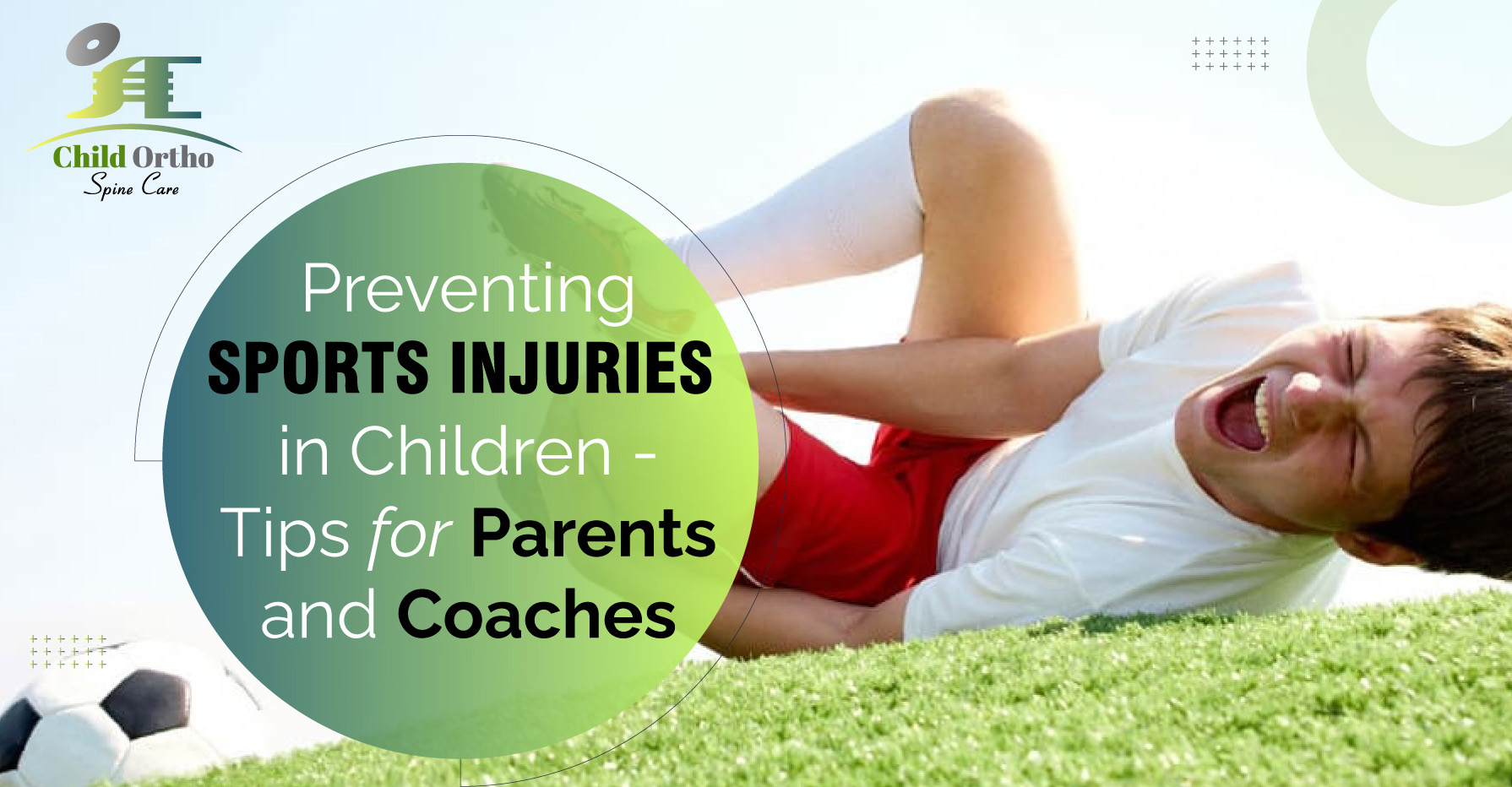- Children’s Orthopaedic & Spine Care Clinic

Sports injuries in children are common and can range from minor bumps and bruises to more severe injuries such as concussions and fractures. As parents and coaches, it is our responsibility to take measures to prevent sports injuries in children.
One of the most important things parents and coaches can do to prevent sports injuries in children is to ensure they warm up and cool down properly. A good warm-up routine should include the following:
A cool-down routine should include stretching to prevent muscle soreness and stiffness
Wearing the proper equipment is crucial to prevent sports injuries in children. Parents and coaches should ensure children wear appropriate safety gear, such as helmets, mouthguards, and shin guards. Ensuring the equipment is fitted correctly and in good condition is also essential. Old or worn-out equipment can be dangerous and should be replaced immediately.
HydrationChildren should be adequately hydrated before, during, and after sports activities. Dehydration can lead to fatigue, muscle cramps, and dizziness, increasing the risk of injury. Parents and coaches should encourage children to drink plenty of water and sports drinks that contain electrolytes.
 Rest and Recovery
Rest and Recovery
Rest and recovery are crucial to prevent sports injuries in children. Overuse injuries are common in children who play the same sport year-round without sufficient rest. Parents and coaches should ensure that children take regular breaks from sports activities to allow their bodies to rest and recover. During downtime, please encourage your child to participate in other physical activities or sports.
Proper TechniqueTeaching children proper technique is crucial to prevent sports injuries. Poor technique can place unnecessary stress on joints, muscles, and tendons, increasing the risk of injury. Coaches should ensure that children learn the proper technique for their sport and provide corrective feedback as needed. Parents can reinforce proper techniques at home by practising with their children and providing encouragement and support.
Sports PhysicalsSports physicals are an essential tool to prevent sports injuries in children. A sports physical can identify any underlying medical conditions or physical limitations that may increase the risk of injury. Parents and coaches should ensure children receive a sports physical before participating in sports activities.
Injury Prevention ProgramsInjury prevention programs are becoming more common in youth sports. These programs teach children proper technique, injury prevention strategies, and exercises to improve strength and flexibility. Parents and coaches should encourage children to participate in injury prevention programs and provide support and encouragement throughout the program.
Good SportsmanshipGood sportsmanship is not only important for ethical reasons, but it can also prevent sports injuries in children. Children who engage in aggressive or dangerous behaviour are more likely to cause injuries to themselves or others. Coaches should emphasize the importance of good sportsmanship and model appropriate behaviour. Parents can reinforce good sportsmanship at home by teaching their children to respect their teammates, opponents, and officials.
CommunicationCommunication is vital in preventing sports injuries in children. Parents and coaches should communicate with each other about any concerns or injuries. Parents should inform the coach if a child is injured and seek medical attention as needed. Coaches should communicate with parents about any safety concerns or changes in practice or game schedules.
Preventing sports injuries in children requires a team effort between parents and coaches. Proper warm-up and cool-down, proper equipment, hydration, rest and recovery, proper technique, sports physicals, injury prevention programs, good sportsmanship, and communication are all essential strategies to prevent sports injuries in children. By implementing these tips, parents and coaches can help ensure children have a safe and enjoyable sports experience. In addition to preventing sports injuries, parents and coaches should also encourage children to have a positive attitude towards sports. Emphasizing the importance of fun, teamwork, and personal growth can help children develop a lifelong love of sports while preventing burnout and overuse injuries.
It is also essential to consider the impact of sports injuries on a child's mental health. Injuries can be frustrating and discouraging, particularly for children passionate about sports. Parents and coaches should provide emotional support and encouragement to help children cope with injuries and continue to participate in sports safely and healthily.

